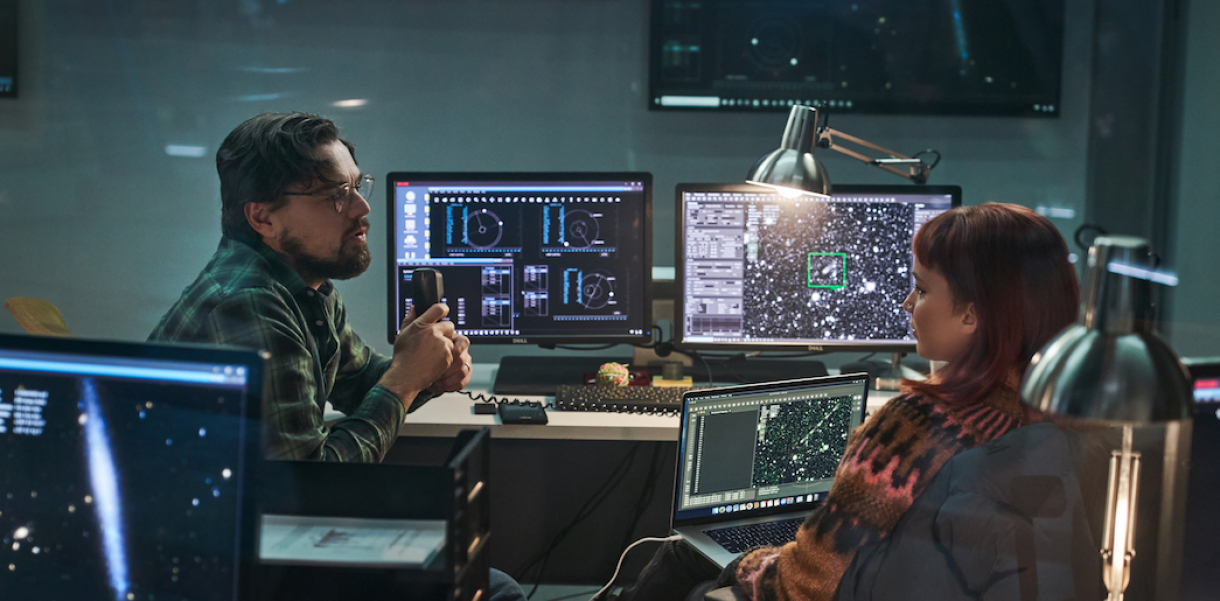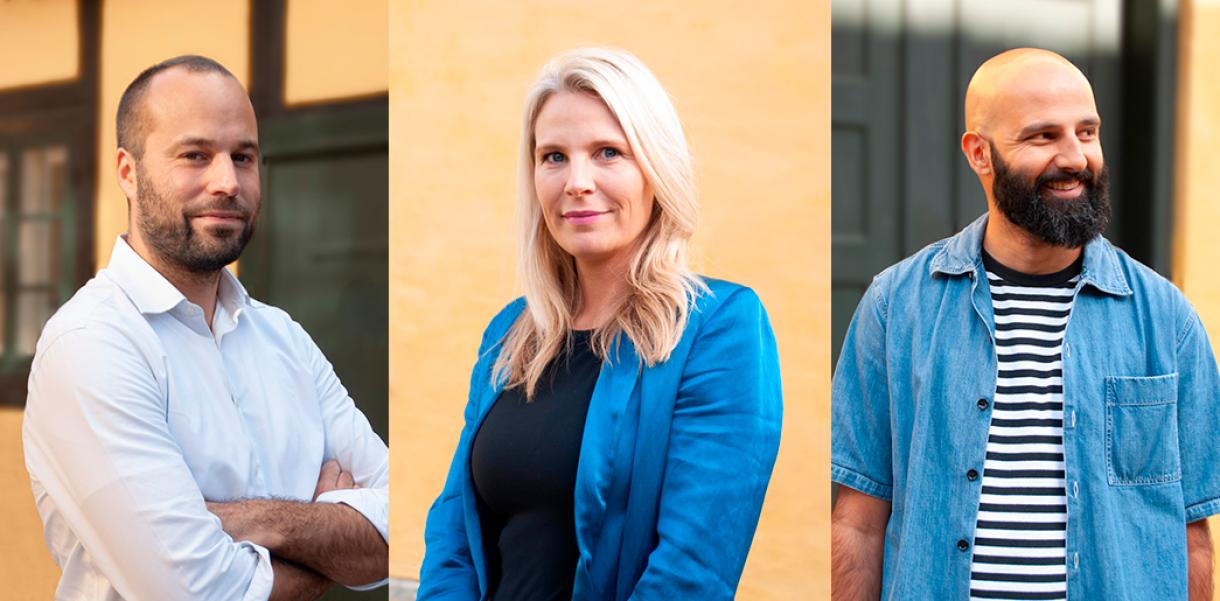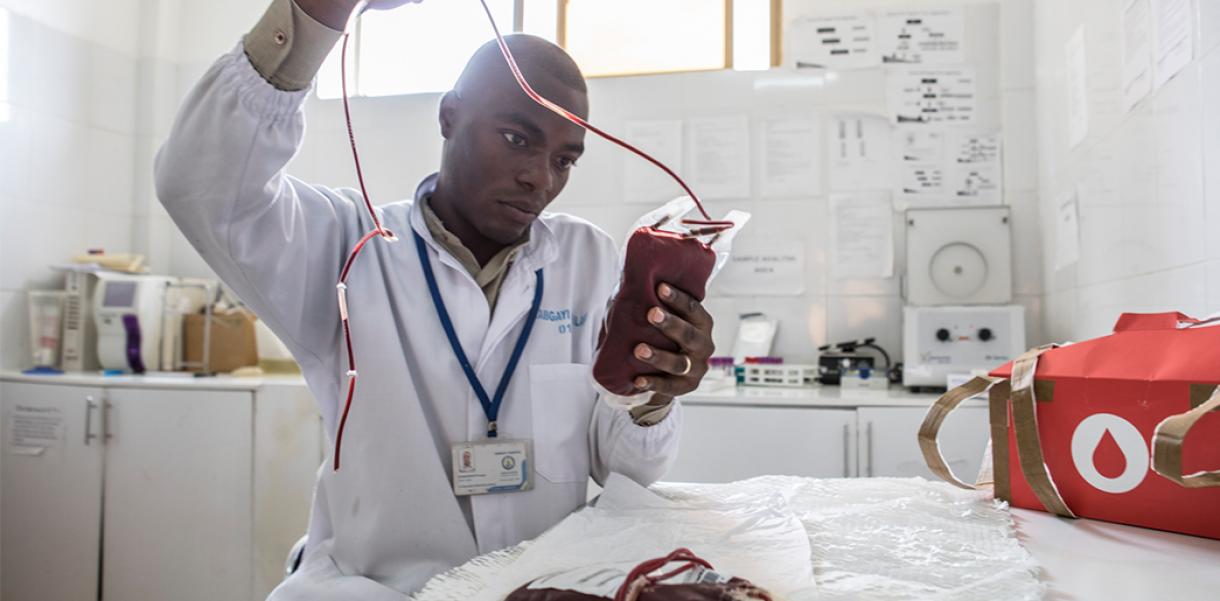I spent January 1st on the couch, surrounded by fast food with a craving for a funny movie. I thought Adam McKay’s latest movie on Netflix ‘Don’t look Up’ would do the trick – and I was both right and wrong.
The movie, which is about two astronomers eagerly fighting to alert the world on an impending doom caused by a six to seven kilometres wide comet, is a dark satire. It’s a tragic parallel to the struggles climate scientists face trying to get world leaders to act on climate change and a dire take on how overreaching power and greed defies the common good.
There is a surplus of topics and themes to dissect from watching ‘Don’t Look Up’ but something that really stuck with me was the concept of needing a hero. Both in the sense of sacrificial lambs who volunteer to save the world, but also the need for professional authority, that we can put our trust in and make our own.
”This personalisation of and need for a hero during a crisis is now starting to puzzle me.”
In the movie, it’s the astronomer Randall Mindy, played by Leonardo DiCaprio, who becomes the centre of the crisis, the face of hope. He becomes a regular on talk shows, a cover on magazines and is nicknamed the sexy scientist. In the real world, we’ve seen a similar personalisation of the climate crisis in Greta Thunberg and of the Covid crisis in Chief Medical Advisor to the President of the United States Anthony Fauci.
I imagine we've all seen some version of this in our home country. In Denmark, where The Index Project is based, the Chief of the Danish Health Authority Søren Brostrøm became the talk of the town when the Covid crisis began. People fell in love with his calm, direct and sometimes quirky ways of describing the situation at the government’s press meetings. Soon, he became a much-beloved character, who, similar to ‘Don’t Look Up’s Randall Mindy, was featured on the cover of magazines, in TV shows and even celebrated at award shows.
But despite the cause of his fame, the focus of the media coverage of Brostrøm became his personal life. How he was a male gynaecologist and homosexual. How his love life was, his personal crises and so on and so forth.
This personalisation of and need for a hero during a crisis is now starting to puzzle me. On the one hand, I know that humans relate to other humans and that the need for a trustworthy figure can both steer us in the right direction and keep us calm. But when these beacons become subjects of personal interest, are we losing sight of the crisis at hand? Is the personalisation making more light of dire situations? The more and more I think about it, I'm starting to fear that focusing on the person is not a gateway to the important content but also an escape from it.
“I'm starting to fear that focusing on the person is not a gateway to the important content but an escape from it.”
Working with community and communication at Index, I’m constantly reaffirmed that the stories and content that people care most for and react to are those evolving around humans, not objects. And that the private is often more interesting than the professional. If you want to reach an audience, the first is still more important than the latter.
The human angle is necessary to assess the problems of our planet, but when the focus turns to the personal, it’s easy to look away from the problem they’re supposed to bring awareness to.
For now, I think we must adhere to the fact that we do need a hero in times of crisis or else it all gets too overwhelming. But as a society, we’re taking away from the severity and urgency of situations when we ask for and engage with the person over the professional, time and time again. Is it possible to settle for the hero in a cape and not the person behind the getup?






